- Home
- Nieuwsoverzicht
- Interviews with Helmien Rambaldo, Willemijn Vorderman-Jansen and Babette de Leede
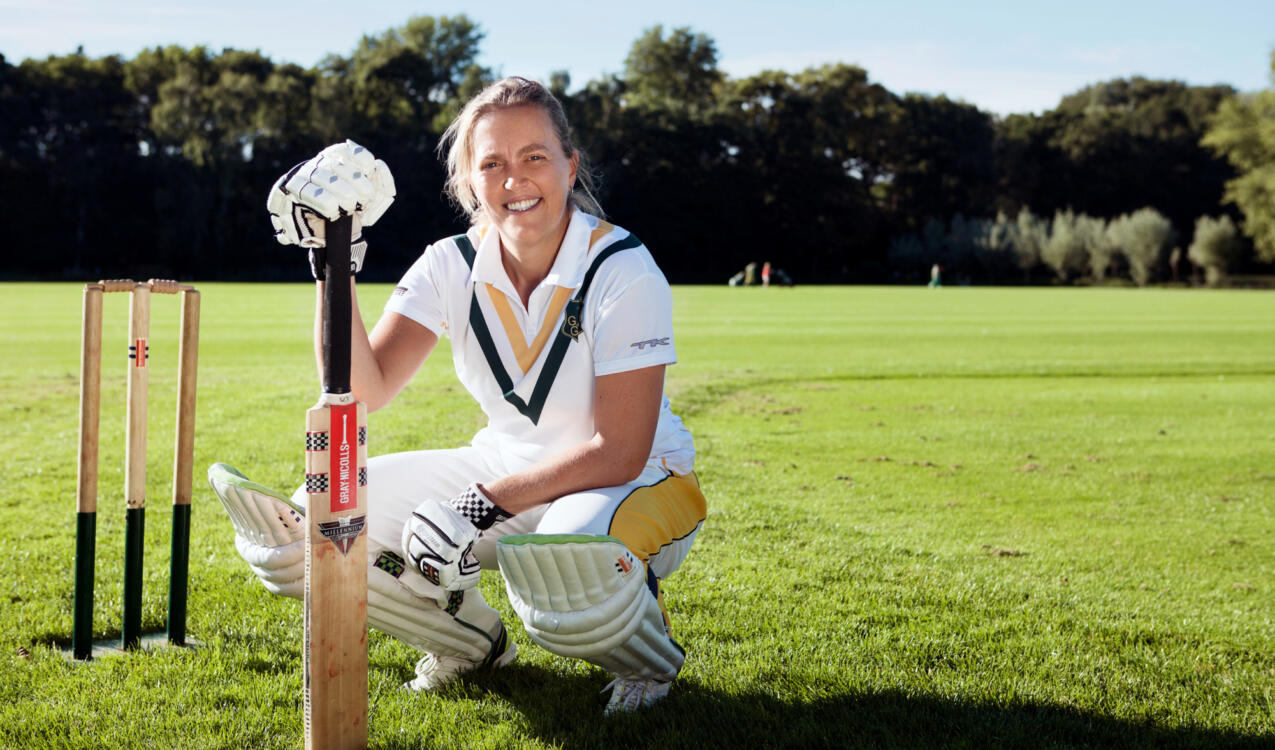
"Cricket has brought me a lot, including good planning and more self-confidence" --- "Women and girls must make their voices heard" --- "It is very special to train for hours with your teammates day in and day out towards a collective goal."

Helmien Rambaldo:
"Cricket has brought me a lot, including good planning and more self-confidence"
Helmien Rambaldo made 723 runs in 46 One Day Internationals and 154 runs in ten T20Is. She is now a valued coach of several national youth teams.
What has cricket brought you in terms of personal development?
A lot. I am who I am because of all the opportunities I've been given in cricket. Living and touring abroad, dealing with pressure, being captain of the Dutch team including speaking for groups, dealing with setbacks, and fighting for what you believe in. In youth, discipline and good planning were especially important to combine school with cricket. In busy times at school it was important to train and play as well. To do this, I sometimes had to say no to other things. Making these choices consciously has taught me a lot. And generally self-confidence. Cricket allowed me to express myself and gave me more confidence. Now as a coach I develop myself in other areas, am more reflective and thinking in the longer term: how do I get the best out of someone?
Why do you think it's important to commit to women's cricket?
When I see what cricket has given me, I wish it to everyone; to be able to develop and express yourself. The more opportunities there are, the better, for female players, but also for female coaches, umpires and board and committee members. At the moment, unfortunately, there are not the same opportunities as for men, so that is something to work on. As a player and captain of the Dutch national team, I wanted to commit to better opportunities for girls and women who want to play cricket. What this has taught me is to divide challenges into small chunks and then always take the issue a step further. Even now in my role as a coach, I think it is important to create opportunities for (more) female coaches.
What tips do you give to others to stimulate women's cricket?
Start simple, ask family and acquaintances of players and other women who are already coming to your club to think along. Link promotion to your existing activities. Give a girls/ women's clinic during the innings break of a match of the first men's team. Instead of a father/son competition at the end of the youth season, organise a mother/son or mother/daughter activity. Include goals in your plans for the club (for example, in 2025 we want at least twenty girls at the club, a female coach, a female umpire), write them down and discuss them with each other. Find people (not necessarily women) who are actively involved in this. Approach people personally to do this.
Who do you want to put in the spotlight who you think has meant a lot to women's cricket?
Esther de Lange. During the time she played and worked in the Netherlands, she devoted herself enormously to girls' and women's cricket. And now at the ICC, she is always taking initiatives to stimulate women's cricket - and women in cricket - in Europe.
How do you see the recent and current development of international women's cricket?
It is great to see that there is more and more attention for women's cricket and how high the standard is. The highlight for me was the final of the T20 World Cup in Australia in 2020, where there was a crowd of 80,000 people. Also the arrival of the Women's Premier League; in addition to the Hundred and Women's Big Bash League (WBBL), it gives a lot of exposure to women's cricket.
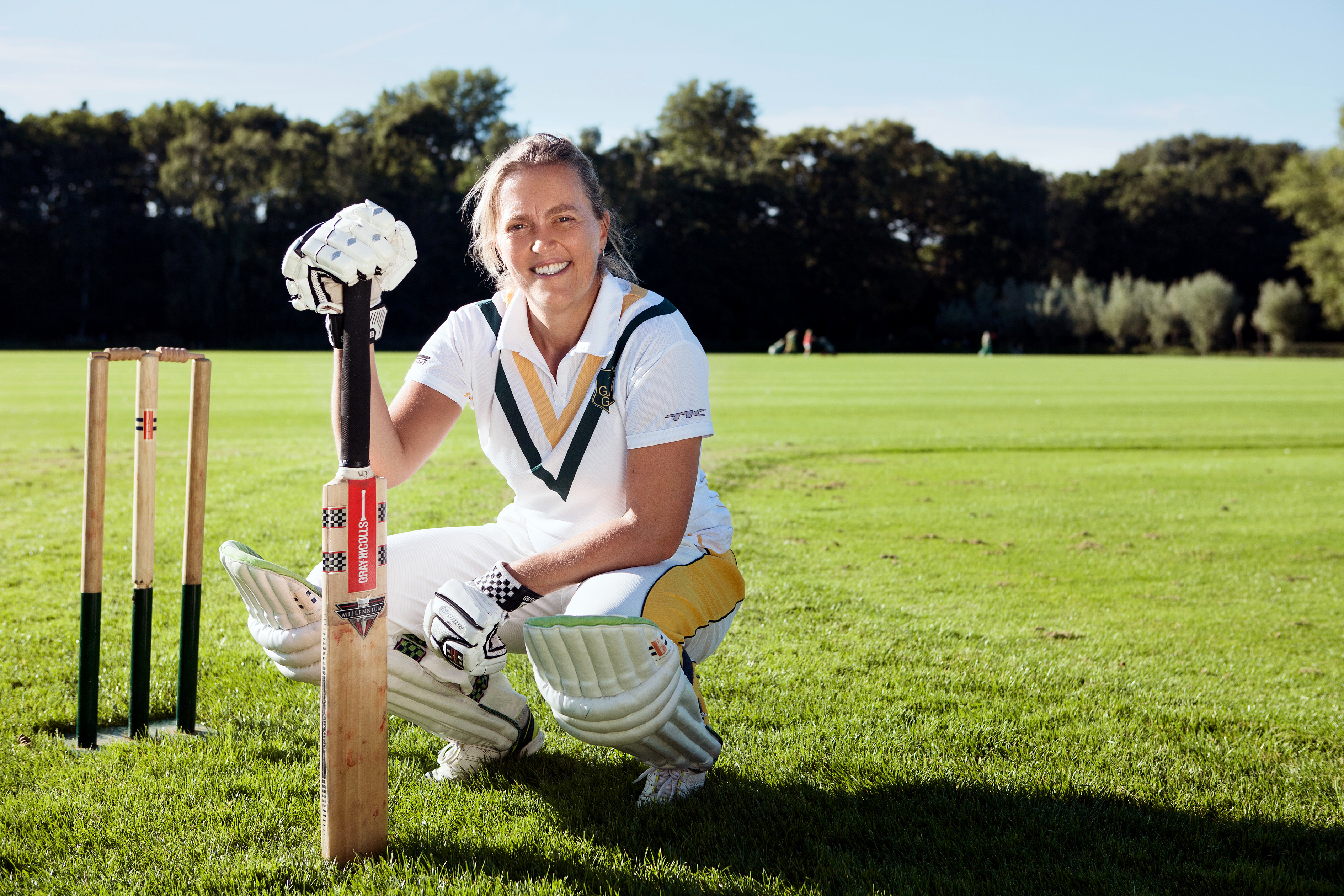
Willemijn Vorderman-Jansen, board member KNCB:
"Women and girls must make their voices heard"
What has cricket brought you in terms of personal development, team building, dealing with winning and losing?
Cricket has brought me a lot! Firstly a lot of fun and sportsmanship with and with my close-knit team at Groen-Geel! How we have been dealing with such a diverse group in terms of ages, preferences and cricket experience for years is, in my opinion, a good example of what it yields when you embrace differences in a group. In terms of sports, I like the fact that you can continue to develop as an individual. I find my, still relatively new, role on the Board instructive and challenging: I get to know the cricket world from a completely different side.
Finally, nice to mention that the bond with my father has become even better because of our shared passion: we were together at Lord's in 2009 - unforgettable! - and we talk a lot about cricket events and developments: he follows everything closely; also the administrative activities.
Why do you think it's important to commit to this?
Since I was active in C.T.C. de Flamingos - first in setting up the women's branch, then as secretary - I always tried to contribute to creating a broader base of women's cricket in the Netherlands. I thought it was very important that a club such as the Flamingos wanted to play a role in this. This subsequently made me eligible for the role of secretary in the current Board, a question to which I did not want to say 'no', not least because I think it is important that women's cricketers show themselves more in all kinds of bodies within the cricket world.
What tips do you give to others to stimulate and mobilize women's cricket?
I noticed, both at the GMM and the regional meetings at the end of last year, that there were relatively few women. It is important to make your voice heard in the places where decisions are made. I would urge the women and girls cricketers to do just that. It's less about women's cricket when we're not present, so it's important to be present and represent the importance of women's cricket.
Who do you want to put in the spotlight who you think has meant a lot to women's cricket?
I can think of quite a few. Ingrid van der Elst, Denise van Deventer-Hannema, Helmien Rambaldo and my teammates Floor van den Assem and Tjitske Maathuis. But there are more! I choose Julia Corder: she recently started on the board of VCC: as an encouragement I like to put her in the spotlight because of this good step.
How do you see the recent and current development of international women's cricket?
As a huge positive: great that the Dutch ladies play ODIs again and how cool that the Dutch women's team recently became T10 champion! I am very curious about the developments of the team and also the individuals who play in it. I like to follow it all, together with my fanatic father.

Babette de Leede (23), wicketkeeper/ batter of the Dutch women's team: "It is very special to train for hours with your teammates day in and day out towards a collective goal."
What has cricket brought you in terms of personal development, team building, dealing with winning and losing?
Since cricket is a technical sport, it can sometimes be frustrating when things don't work out. But that teaches you not to give up until something does work out, and that you're never done learning new things and improving yourself. Moreover, it is very special to train for hours day in and day out with your teammates towards the same goal. Cricket is an individual team sport, so individual successes are certainly celebrated, but nothing is better than walking off the field as a winning team (even if you didn't perform the way you wanted).
Why do you think it's important to commit to this?
(Women's) cricket in the Netherlands needs more attention. The numbers and therefore the standard in the Netherlands are declining. This is a shame, because this way the quality differences within teams become too great, with people losing interest fun in the game as a result.
What tips do you give to others to stimulate and mobilize women's cricket?
Girls have to come into touch with cricket at a young age, otherwise you can never really learn it properly. It is therefore important that children in the Netherlands see how cricket works and how much fun it is, and that you can play cricket alongside football or hockey. And for girls also how far it can take you: getting into the Dutch women's team (and the youth teams) is much easier than, for example, playing hockey, and we go on wonderful tours. Moreover, at the age of 23 I already play with the world's top, players who have cricket as a job (during FairBreak).
Who do you want to put in the spotlight who you think (has) meant a lot to women's cricket?
The founder of FairBreak, Shaun Martyn, is very committed to women's cricket and especially for players from small cricket countries. For me, it offers the opportunity to compete with the world's best and to make some money, so that I can postpone an office job a bit and continue to play cricket for the Netherlands. Hopefully we will soon see more Dutch girls involved in FairBreak. The KNCB is also taking women's cricket more and more seriously, and with the Dutch team we are getting better and better and we play more international matches every year.
How do you see the recent and current development of international women's cricket?
Internationally, women's cricket is developing rapidly: not only the standard, but also the publicity, the chance to make money from cricket, and the number of women's matches each year.
Read more
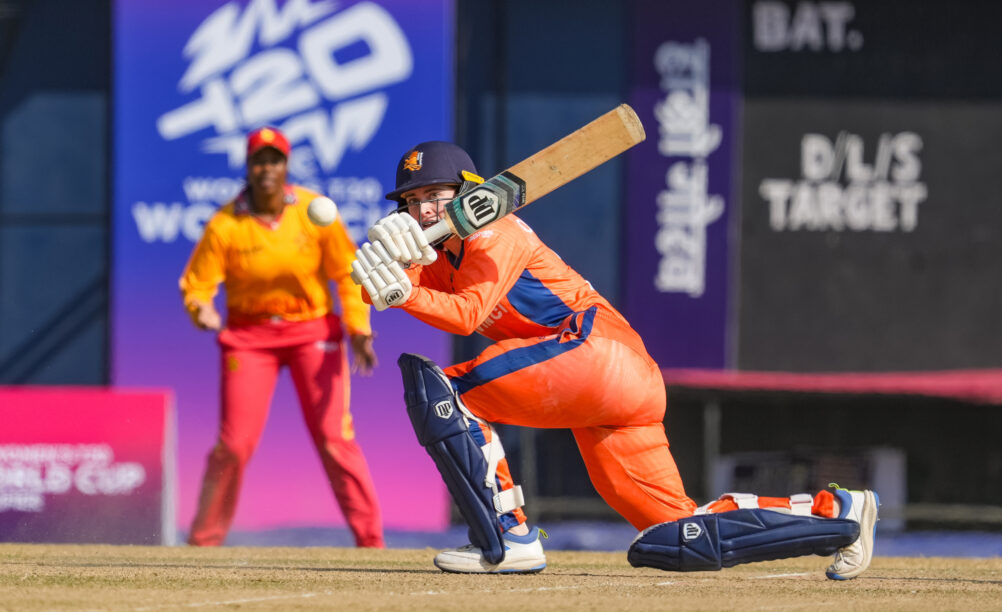
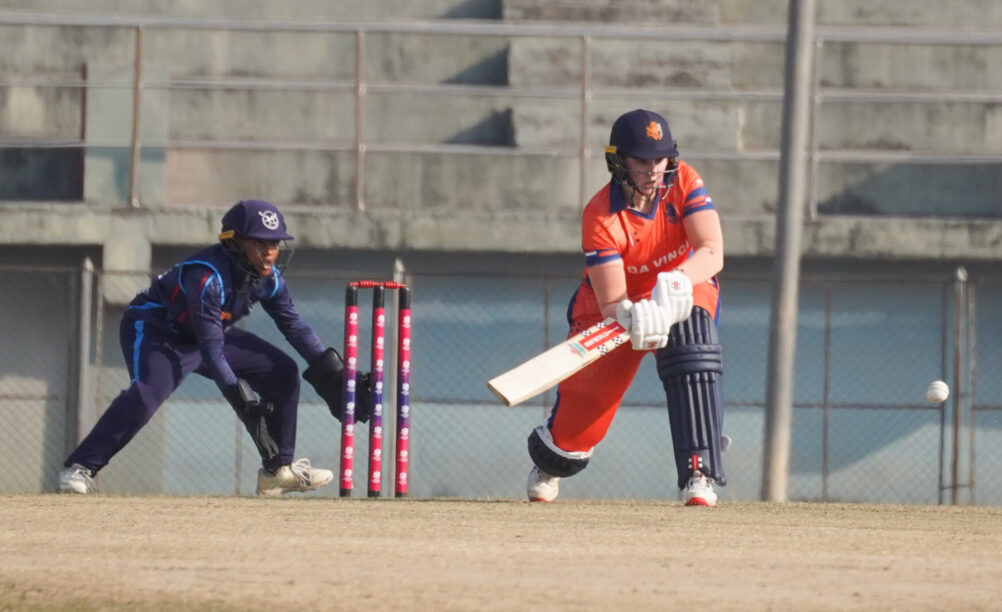
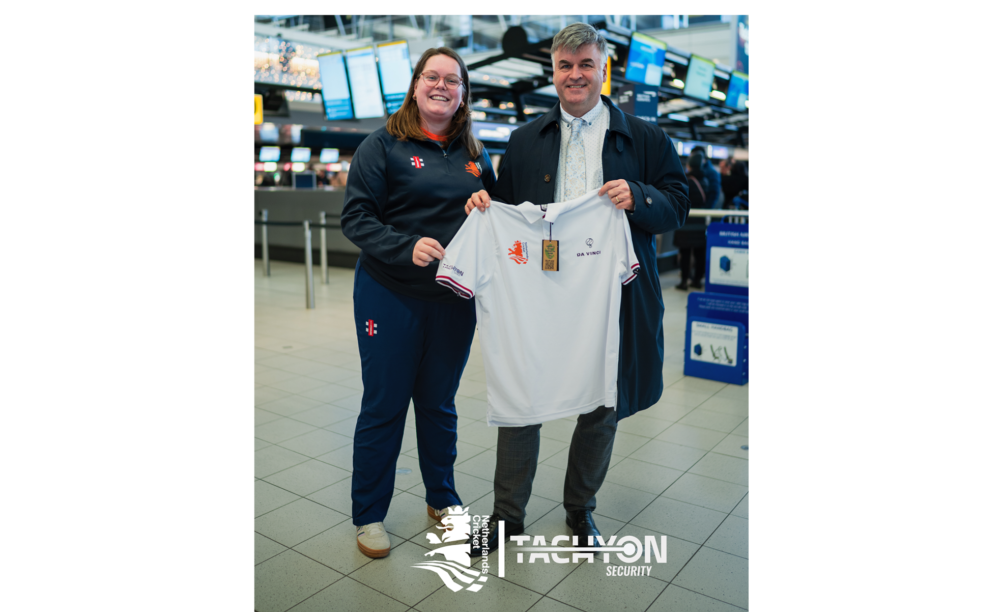
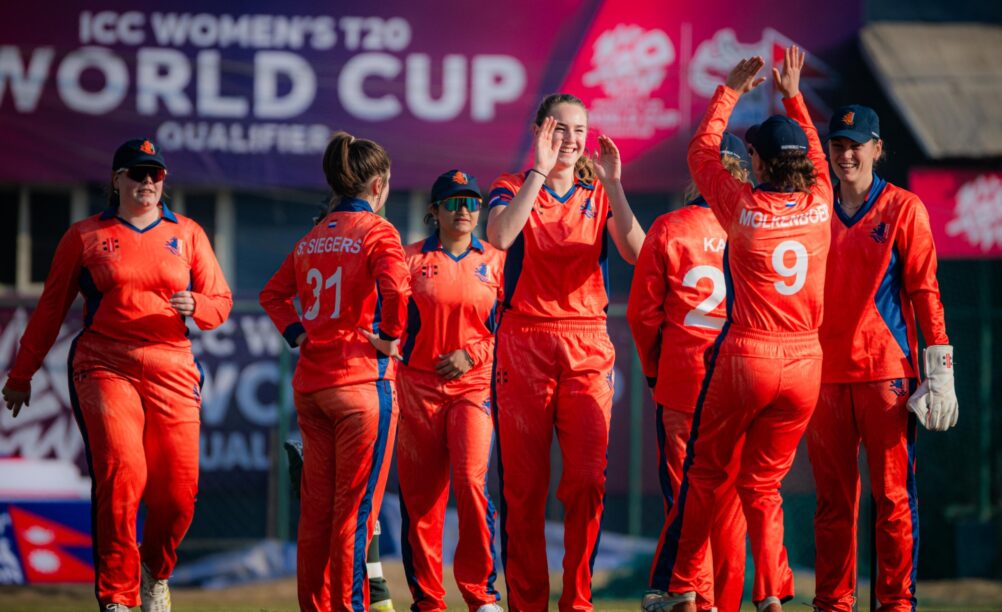
Recent news
A winter full of Orange cricket!
Following our national women's team's successful participation in the inaugural ICC Emerging Nations Trophy in Thailand, new major tournaments are already on the schedule for our national teams. In January, the Dutch women will play the T20 World Cup Qualifier in the Nepalese capital, Kathmandu. The top four teams will qualify for the T20 World Cup in England in the summer of 2026. In February and March 2026, the Dutch men will participate in the ICC T20 World Cup, which will be played in India and Sri Lanka. One of the top matches is the one in Ahmedabad on February 18, 2026, against host nation India.








